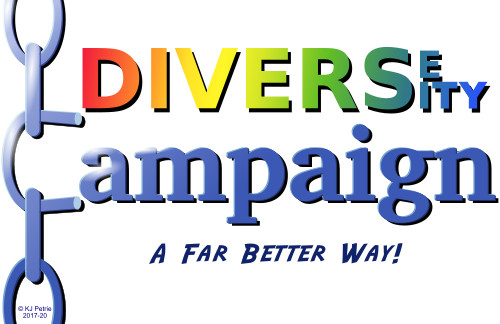Why Pronouns Matter
Identity is a personal thing. It is, perhaps, the most personal thing we have and our individual autonomy is central to it. I must control my own identity in order to be an autonomous human being. My autonomy and my identity are what enable me to be myself. It follows these two aspects of my personality must be under my sole control and nobody should presume to interfere with them.
My identity underlies and reflects how I understand myself and my relation with the world around, down to the minutest detail. My autonomy is the innermost and most important control of that identity. These are the most important thing I am and the most important thing I have.
How I view the world is absolutely and intimately connected with my innermost nature and when I communicate with another person I reflect that in what I say. My choice of words, my phrasing, everything about the way I speak reflects my understanding which derives directly from my personality. That is why I must be free to choose my own words to express my own self. If I am not allowed to choose my own words I am not allowed to be myself.
The same, naturally, applies to every other person. They must choose their own words. Any attempt by me to constrain their use of words would be an intrusion on their autonmoy and an affront to their identity.
Of course, there are usually at least two people involved in any conversation: the person speaking (referred to in grammar as the First Person) and the person or people being addressed (the Second Person). Normally, what passes between them is private, personal, and reflective of the people involved. With one or two exceptions, relating to matters such as defamation or conspiracy to harm someone, the conversation is nobody else’s business.
Opinions, likewise, are the property of the person who holds them. Nobody should be able to dictate someone else’s opinions. They too, are expressions of a person’s personality. The ability to express an opinion is the ability to be oneself.
What follows from this might come as a shock to some; that a third person has no right to interfere with other people’s interactions even if referenced in the conversation. Unless defamatory, what you think expresses your identity, not mine. Because you are entitled to both your identity and your opinion, I am not entitled to dictate what you think about me. To do so would be a gross violation of your identity. How I see myself is my identity, but how you see me is yours.
In grammar, the Third Person refers to someone not involved in the conversation who is mentioned in it. Now, since by definition a Third Person is not directly involved in a conversation between others, it follows that the words used in that conversation do not reflect their identity, but that of those undertaking the conversation. Therefore any pronoun used in reference to them is not chosen by them, but by the First Person. That is important. It is the nub of the issue. A Third Person pronoun belongs not to the Third Person, but to the First Person. It expresses the viewpoint and identity of the First Person, not the Third. Moreover, it would not normally even be heard by the Third Person unless in a published article. Even then, a published article is the view of the writer, not the reader. Why then should they presume to dictate the words others should use? I am entitled to see things my way, but I cannot insist you see things my way. That is your prerogative, not mine, and must reflect your view.
Therefore, any attempt to dictate which third-person pronouns others should use is an interference with the fundamental freedom and identity of those others and their right to understand the world their way. Far from freeing people to be themselves it has the opposite effect and denies people that right. Only by being allowed to use the language they see as appropriate will people to be allowed to live as themselves. The idea that the objects of such pronouns should choose them rather than the users is therefore seriously misguided because it tramples on identity and autonomy.
This highlights the problem with Wokeism and why some of us find it so intrusive. It amounts to a failure to respect boundaries. Instead of being content with their own autonomy, Wokeists trespass on the autonomy of others. They ignore the boundary between the private and the public, and between their identities and others’. Not content to control their own identity, they interfere with others’. Claiming the right to live as the people they believe themselves to be, they deny that same right to anyone who sees things differently, and they seek to deny a voice to anyone who disagrees, and to punish those who won’t back down with loss of reputation or livelihood. They have reversed Robert Burns’ famous couplet:
“O wad some Power the giftie gie us
To see oursels as ithers see us!” (To a Louse, c. 1785)
Instead, they want the power to force others to see them as they see themselves.
K.J. Petrie

